Lobbyists are professionals with deep knowledge of the way government works. These advocates work on behalf of individuals and organizations to influence political and legislative decisions.
Professional lobbyists often have well-established relationships with policymakers, giving them special access to key government officials and influencers. It’s why organizations of all sizes often choose to hire a lobbying firm rather than petitioning government decision-makers on their own.
Who Needs a Lobbyist?
Most people associate lobbying with giant corporations. But all sizes of organizations—from trade associations to nonprofits—can also benefit from hiring a professional lobbyist.
Hiring a lobbyist makes sense if your organization has a specific regulatory or legislative goal in mind that requires engagement with government decision-makers. Seeking federal funding is also another major catalyst for hiring a lobbying firm. An experienced lobbyist can boost an organization’s chances of achieving a specific goal, whether it’s getting a new law passed or securing government funding.
Questions to Ask a Lobbyist
When deciding whether to hire a lobbyist, it’s critical to ask the right questions to assess their qualifications, experience, and suitability for your needs. Here are ten questions to ask before you hire a lobbyist.
1: What is your background and experience?
Understanding the lobbying firm’s experience and expertise is essential. How many years have they been on the scene, and how experienced are their staff members? Ask about their track record, previous clients, and the types of issues they’ve worked on.
2: Can you provide references from past clients?
Request references to gauge the firm’s reputation and the satisfaction level of previous clients. Consider contacting any references to ask about their experience. These conversations can provide valuable insights.
3: How familiar are you with my issue or industry?
Make sure any firm you’re considering has a solid understanding of the specific issue or industry you need representation in. A firm may have great reviews in a particular area, but that doesn’t mean they’re going to be great for your organization.
Choose a lobbying company that has solid experience working within your area of interest—with staff members who understand your issues.
4: How do you stay informed about legislative and regulatory developments?
Lobbyists should have effective strategies for staying up to date on relevant policy changes and developments that may impact your interests.
Any good lobbyist will be on top of legislation before the General Assembly. They’ll know what legislation has succeeded and failed in the past, and why. They’ll have their finger on the pulse of what’s going on in Washington, week to week and day to day.
5: What is your approach to building relationships with policymakers?
Lobbyists typically build relationships with policymakers through a combination of networking, frequent interactions, and education (providing information and insights on issues of interest to policymakers).
Effective lobbying often relies on relationships with key decision-makers. Ask about their strategies for cultivating these relationships.
6: What is your strategy for achieving our goals?
Lobbyists may talk a big game about what they can do for your organization, but digging deeper will help you uncover how they plan to actually deliver on their promises.
Ask for a detailed plan outlining their strategies and tactics for achieving your lobbying objectives. This should include legislative, regulatory, and grassroots efforts, if applicable.
7: How do you handle potential conflicts of interest?
Ask the lobbying firm how they manage conflicts of interest, especially if they represent other clients with conflicting interests or if they have personal connections to policymakers.
Lobbying firms usually have established conflict of interest policies that require them to disclose all client relationships and potential conflicts. These policies may include guidelines on recusal from certain lobbying activities or clients when a conflict arises.
8: What is your fee structure?
Clearly understand their fee structure, including any retainer fees, hourly rates, or contingency fees. Additionally, ask about expenses that may be billed separately, such as travel or research costs.
Small and medium-sized businesses especially can’t afford to just accept an hourly rate with an ambiguous set of goals. Look for a firm with a tiered pricing system that clearly outlines what you get with each pricing tier.
9: How do you measure success and provide progress updates?
Ask how the firm measures the success of their lobbying efforts and how often they will provide progress updates and reports.
10: What is your ethical and compliance framework?
Ask your lobbyist how they comply with all relevant laws and regulations and about their approach to transparency and disclosure.
Lobbyists must adhere to a strict code of ethics, which includes a duty to act in the best interest of their clients while maintaining transparency and avoiding actions that could compromise their integrity. A lobbyist can choose to recuse themselves from representing a client or issue if they believe that continuing representation would pose an insurmountable conflict of interest.
Lobbyit: Bringing Access and Transparency to Washington, DC
Lobbyit was founded to make lobbying accessible to organizations of every size. Today we’re one of the top lobbyists in Washington, DC. Our clients range from small associations to publicly traded corporations.
Lobbyit’s outstanding team has an in-depth understanding of how to get things done in Washington. Our groundbreaking business model has helped secure our place among DC’s top lobbying firms.
Read testimonials from our satisfied clients and get in touch today to find out how our team can help you get results.

